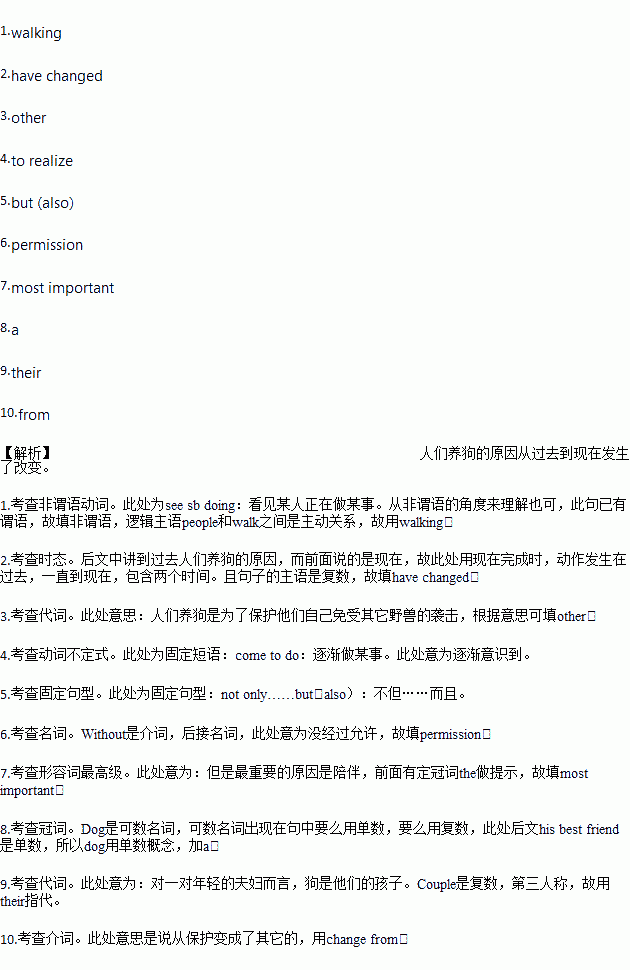题目内容
When you take a walk in any of the cities in the West, you often see a lot of people1. (walk) with dogs. It is still true that the dog is the most useful and faithful animal in the world. But the reasons why people keep a dog2.(change). In the old days, people used to train dogs to protect themselves against the attacks from3.beasts. And later they came4.( realize) that the dog was not only useful5.willing to obey its master. For example, when people used dogs for hunting, the dogs would not eat what they caught without6.(permit). But now people in the city need not protect themselves against attacks of animals. Why do they keep dogs, then? Some people keep dogs to protect themselves from robbery, but the 7.(important) reason is for companionship. For a child,8.dog is his best friend when he has no friends to play with; for a young couple, a dog is 9.child when they have no children; for old couples, a dog is also their child when their real children have grown up. So the main reason why people keep dogs has changed10.protection to friendship.
 名校课堂系列答案
名校课堂系列答案

 the effective ways to improve our English writing ability.
the effective ways to improve our English writing ability.